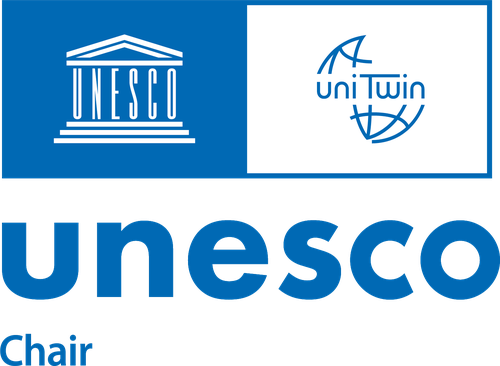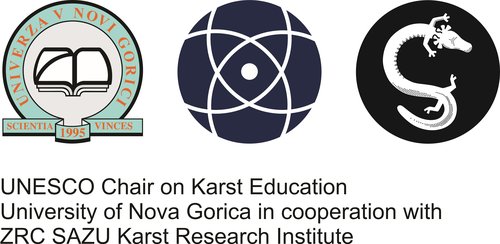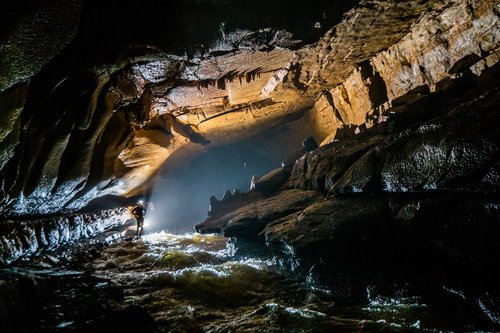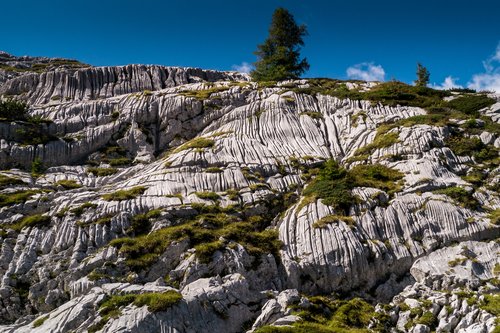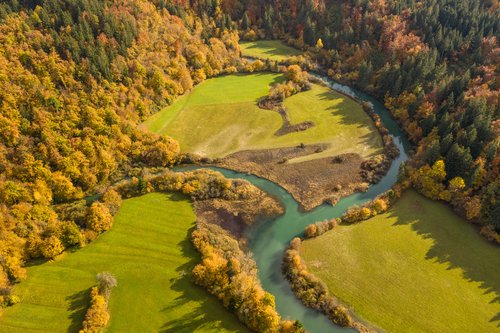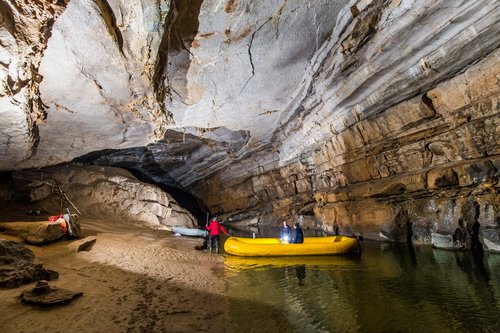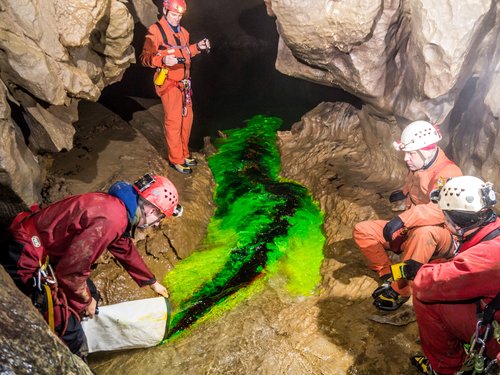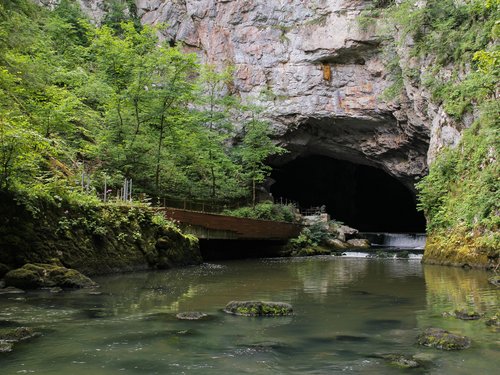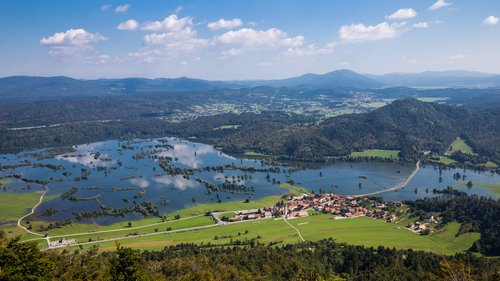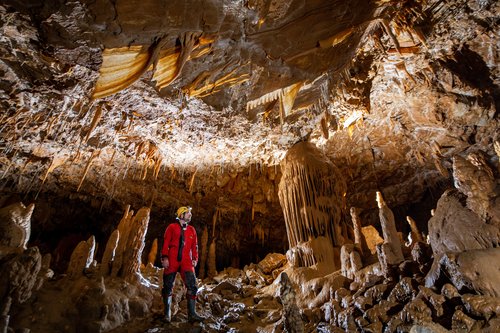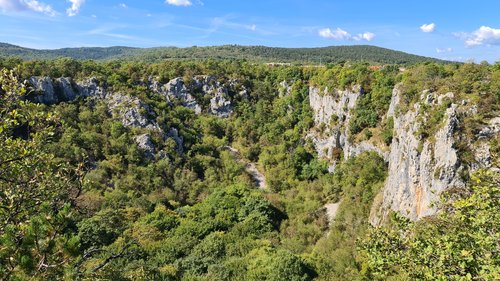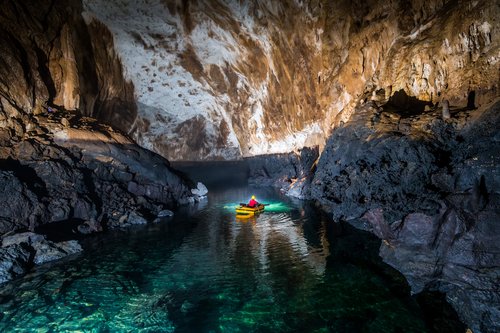Karstology (Third Cycle)
| Study programme: | Karstology (Third Cycle) |
|---|---|
| Main fields of study: | Karst surface and underground, karst in Slovenia and in the world |
| Programme code: | 3KR |
| Programme cycle: | Third cycle doctoral degree |
| Name of the qualification: | Doctoral diploma |
| Qualification title: | Doctor of Philosophy |
| Qualification abbreviation: | Ph.D. |
| Final examination: | no |
| Dean: | prof. dr. Martina Bergant Marušič |
| Programme director: | prof. dr. Martin Knez |
| ECTS coordinator: | prof. dr. Iztok Arčon |
Doctoral degree study programme in Karstology is intended for candidates who have completed the previous study programme for obtaining university education or a second-level study programme of various fields, and who wish to gain deeper insight of this broadly “integrated system of sciences on karst” and become karst researchers or karst managers. On one hand, the programme offers a broad-based basic introduction to karst from various aspects (geologic structure, surface, underground, water), and on the other hand enables a highly-focused in-depth orientation in line with the interests of each student (e.g. the use and protection of karst waters). The curriculum is designed accordingly and offers a handful of required courses and a wide array of elective courses with emphasis on independent research work.
Students can use their training in institutions involved with karst research as well as institutions involved in managing karst. Lecturers are renowned Slovenian and leading foreign karstologists. The fundamental objective of the study programme is to produce two types of karstologists. The first is the karstologist-researcher who will have the competence to perform independent research of karst and karst phenomena from multiple aspects and for different purposes. The second type is the karstologist-user or manager who will have the capacity to apply the full knowledge of karst conveyed by narrowly specialized experts for different applications (economy, education, protection).
Programme description
Karstology third cycle programme is doctoral degree study programme.
The Senate of the University of Nova Gorica (UNG) at its 75th session held on 18 January 2017 approved the extension of the third cycle Doctoral degree study programme Karstology from the current three years (180 ECTS) to four years (240 ECTS).
Students who are enrolled in the three-year study programme will complete studies at the three-year programme.
Doctoral degree study programme Karstology it is meant for:
- students in science or related disciplines (for example geography), who displayed adequate results during the first and second level of study and who are oriented to scientific research work,
- management and other workers (pedagogical) with suitable education, who wish to be acquainted with karst in greater detail.
Doctoral degree study programme Karstology is the only doctoral programme of this sort in the world and the only programme that gives you the title “Doctor of science in the field of karstology”. The programme is distinctly international and since the very beginning, we have had a large number of foreign students in the programme. We have had students from North, Central and South America, from around Europe and from Asia.
The programme is carried out in close association with the Karst Research Institute operating within the Research Centre of the Slovenian Academy of Sciences and Arts (ZRC SAZU). The course principals and mentors are well-established and internationally known scholars of karstology from the ZRC SAZU Karst Research Institute, UNG and from partner universities abroad. The research activities take place in the premises of the Institute in Postojna, where students are provided with all the necessary professional and scientific support for their own research work. The links between ZRC SAZU and UNG in relation to the implementation of the Doctoral degree study programme in Karstology were further strengthened in 2014 with the establishment of the UNESCO Chair at the University of Nova Gorica called UNESCO Chair on Karst Education, which is carried out by UNG in close collaboration with the Karst Research Institute operating under ZRC SAZU.
Appointing of the First UNESCO Chair in Slovenia - University of Nova Gorica
Admission requirements
To qualify for entry into the Doctoral degree study programme Karstology, applicants must satisfy the following admission requirements:
- have completed a 2nd cycle master’s study programme,
- have completed at least a four-year academic undergraduate programme accredited with 240 ECTS credit points,
- have completed a uniform five year master’s study programme accredited with 300 ECTS credit points,
- have completed a specialization after previously finished a professional study programme, and had passed additional study obligations with 30 to 60 ECTS credit points,
- have completed an equivalent programme abroad.
If the number of applicants exceeds available slots, they are selected based on previous academic performance.
Graduates of previous study programmes leading to the Master's of Science or specialization after a completed study programme for obtaining a Bachelor’s degree, who are involved in the doctoral third-level study programme shall be given 60 ECTS credit points towards the doctorate.
Conditions for advancement in the programme
Upon enrolment, student chooses a mentor in the specific scientific field. Student enrol in courses for 60 ECTS credit points, of which 42 ECTS credit points are from required courses and 18 credit points are elective courses approved by the mentor. The student can take 2/3 of elective courses (12 ECTS credit points) at foreign institutions. In the first year, the student has to write a seminar paper in cooperation with the mentor. The paper is related to student's research topic and includes an overview of bibliography, and presentation of global research on the topic. A successful presentation of the seminar paper brings the student 6 ECTS credit points, while 24 ECTS credit points are obtained as a result of the successfully completed research work, which is defined together with the mentor at the beginning of the study year.
Before enrolling in the second year, the student must have completed the following study requirements:
- examinations in required courses (12 ECTS),
- obligations from the research seminar (successful preparation of seminar paper) (6 ECTS),
- independent research work (24 ECTS).
The condition for enrolling in the second year is to have accumulated at least 42 ECTS credit points of the total 60 ECTS credit points.
Before enrolling in the third year, the student must have completed the following study requirements:
- all elective courses from the first (18 ECTS) and second year (18 ECTS),
- obligations from the research seminar (6 ECTS),
- independent research work (36 ECTS).
The condition for enrolling in the third year is completion of 120 ECTS.
In the third year, the student focuses exclusively on Research work (30 ECTS), which results in a successful defence of the doctoral dissertation (30 ECTS). (This is for 3 year programme).
In the third year, the student focuses exclusively on Research work III (30 ECTS). (This is for 4 year programme).
The condition for enrolling in the fourth year is completion of requirements of all three years (180 ECTS).
In the fourth year, the student focuses exclusively on Research work IV (30 ECTS), which results in a successful defence of the Doctoral dissertation (30 ECTS).
Conditions for repeating a year
A student can re-enrol in the first year, provided that has collected at least 18 ECTS in that year.
Information for students
Educational and professional goals
The main objects of the Doctoral degree study programme Karstology are:
- enable at doctoral level state-of-the-art knowledge accumulation based on an intellectual exchange with Slovene and foreign faculty and students who are taking an active part in the study of karstology,
- acquire knowledge related to karst and deepen it correspondingly by means of Slovene and foreign experts, relevant literature and field work carried out on the Slovene Karst and the karst abroad especially by employing an interdisciplinary approach in order to upgrade the knowledge of conventional disciplines,
- promote independent, critical, and creative analysis and synthesis of karst phenomena, theories and hypotheses. Practical working experience, laboratory work and field work make up an education process which unites different methods and approaches from contemporary research projects,
- give students the opportunity to become acquainted with historical cognitions and leading theories, notions and concepts of karst. The students recognize the interrelated processes and karst features and phenomena as well as human impact on karst in the broadest sense,
- educate post-doctoral scholars who are capable of making a quick and reliable analysis and synthesis of their acquired knowledge and to present it adequately, both orally and in writing, in an articulated, well-supported, analytical and synthetic manner in scientific, technical and popular publications,
- educate post-doctoral scholars who have the capacity to constructively use the acquired interdisciplinary knowledge related to karstology in their future line of work within or outside the research institutions and university centres in Slovenia and abroad.
Courses refresh
1. year
| Compulsory courses | Hours | ECTS |
|---|---|---|
| Introduction to karstology | 270 | 6 |
| Methodology of research work | 180 | 6 |
| Research work I | 720 | 24 |
| Seminar I | 180 | 6 |
| General elective courses | Hours | ECTS |
| Active tectonics and karst | 180 | 6 |
| Age of karst processes | 180 | 6 |
| Basic speleology | 180 | 6 |
| Cave tourism | 180 | 6 |
| Development challenges on karst | 180 | 6 |
| Dinaric karst | 180 | 6 |
| Geodiversity of karst areas | 180 | 6 |
| History of karstology and speleology | 180 | 6 |
| Karst ecology | 180 | 6 |
| Karst geology | 180 | 6 |
| Karst geomorphology | 180 | 6 |
| Karst hydrogeology | 180 | 6 |
| Karst in the world - selected examples | 180 | 6 |
| Karstification processes | 180 | 6 |
| Speleobiology | 180 | 6 |
| Speleogenesis | 180 | 6 |
| Tectonic structures and karstification | 180 | 6 |
| Use and protection of karst caves | 180 | 6 |
| Use and protection of karst surface | 180 | 6 |
| Use and protection of karst water sources | 180 | 6 |
2. year
3. year
| Compulsory courses | Hours | ECTS |
|---|---|---|
| Research work 3 | 1800 | 60 |
4. year
| Compulsory courses | Hours | ECTS |
|---|---|---|
| Doctoral disertation | 900 | 30 |
| Research work IV | 900 | 30 |

